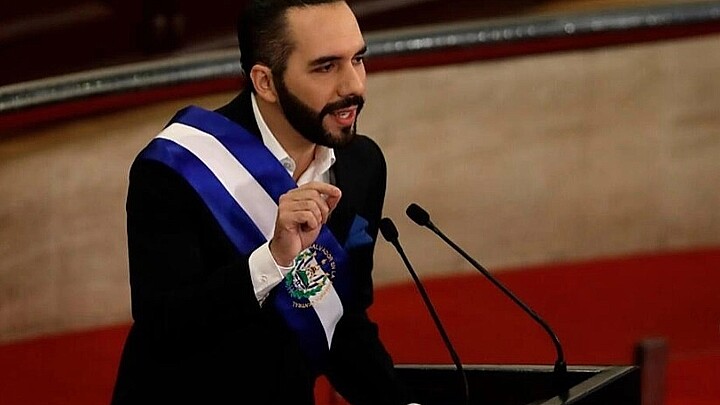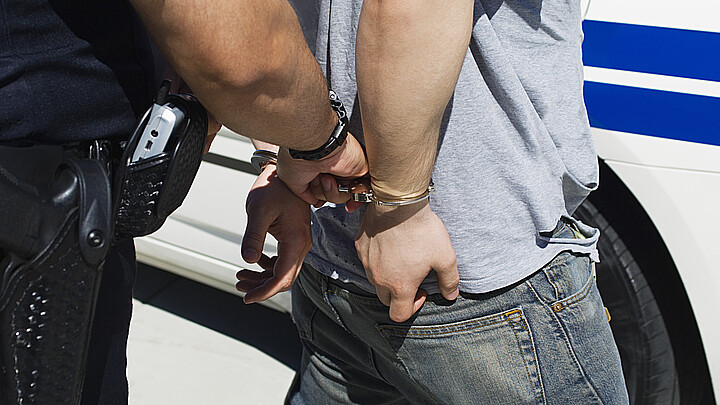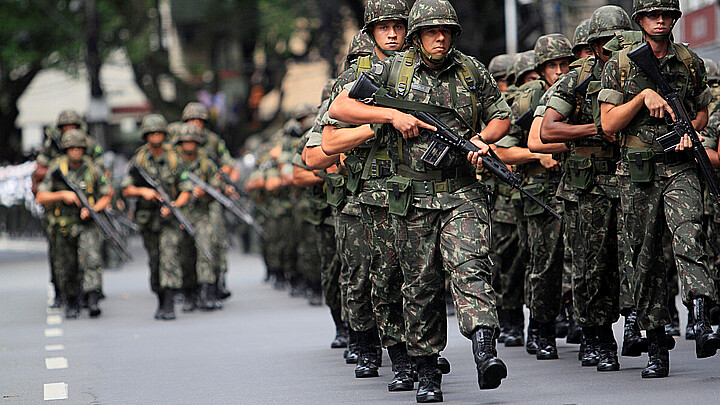Crime
El Salvador extends state of emergency for third time to combat violent gangs amidst mass arrests
The Salvadoran government says the extended powers have been a vital tool in combatting violent street gangs. Civil rights critics complain the extension is overreaching, highlighting 41,000 arrests in the past three months.
June 22, 2022 1:07pm
Updated: June 22, 2022 3:01pm
El Salvador’s legislature voted for a third time Tuesday to extend a state of emergency known formally in the country as a ‘state of exception’ that temporarily suspended some civil rights.
The suspension has reportedly enabled the government to detain civilians with widespread sweeping powers. Some critics, such as Amnesty International have complained the measure is overreaching and illuminated that the government has effectuated more than 41,000 arrests in the past three months.
The Salvadoran government however says the extended powers have been a vital tool in combatting violent street gangs that are controlling neighborhoods and intimidating people to leave their homes.
The MS-13 criminal gang syndicate is one of the largest in El Salvador with an estimated membership of 30-50,000 worldwide, but is just one of many in the country.
President Nayib Bukele asked the Congress for the first state of exception in late March, a day after 62 people were killed by street gangs. The tragic act damaged one of Bukele’s most noted accomplishments, which was a drop in the country’s murder rate.
On Tuesday, Security Minister Gustavo Villatoro said that authorities were winning the war against the gangs, but there was more work to do. “The mission that Salvadorans are giving us is clear, eradicate these terrorists from Salvadoran territory,” he said.
Gustavo Villatoro’s appointment was questioned after Bukele dismissed his previous Security Minister, Rogelio Rivas.
Bukele also faced criticism from the U.S. State Department and Organization of American States after he fired his attorney general and five supreme court justices.
The recent third extension passed with votes from only 67 of the 84 lawmakers in the unicameral Legislative Assembly. During legislative debate, Bukele tweeted that the government was building a huge new prison.
Under the state of exception, the government has more time to hold people before they appear before a judge—an increase to 15 days from 72 hours. Arrestees also do not have to be informed of the reasons for their detainment and authorities can prolong the time they are held without speaking to an attorney.
The government can also tap phones without a judge’s order.
The Salvadoran constitution has exceptions permitting the temporary suspension of rights if there are justifiable conditions and extensions are only permissible if the original suspension was valid.
Civil liberties groups have insisted that the original state of exception was never justified, because authorities already had the ability to investigate and make arrests.
Human rights activists insist many of the arrests are arbitrary, leaving many people locked up in innocent people locked away without due process. Judges are also accused of remanding people into custody like a star chamber without much apparent exercise of judicial discretion.
The president’s approval ratings are currently high and the extensions have received support among many civilians who have vocalized their concerns about the gang problem.
José Heriberto Hernández, a 51-year-old laborer, said Tuesday that he thinks the extension is helping keep peace and security, but offered some criticism.
“I also think that they need to take steps to free the innocent more quickly,” he said.










